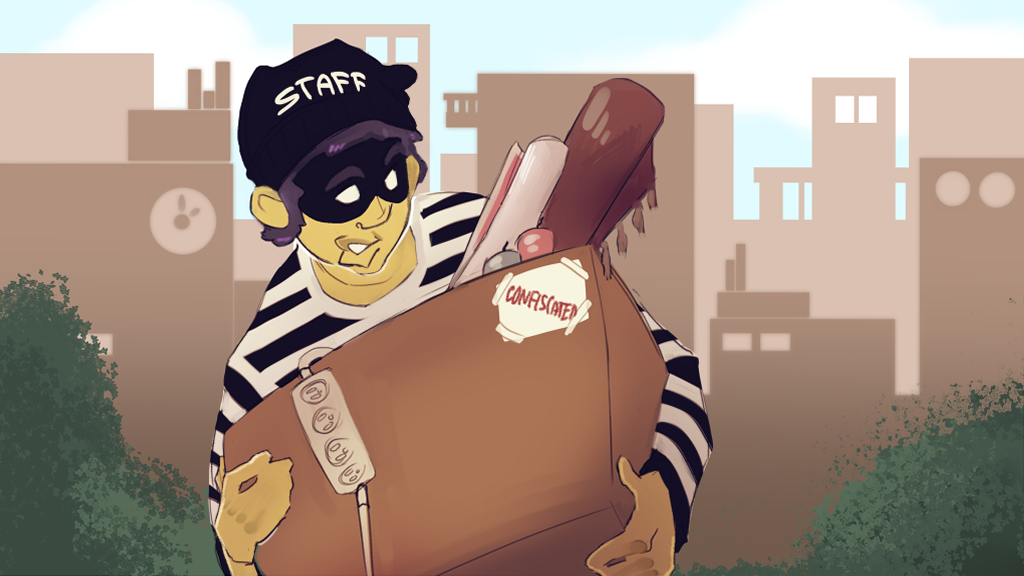As of this November, RIT will be instituting a new housing policy which states that any items found in RIT housing during inspection that violate the fire safety code will be confiscated and removed from the premises. What does this mean, exactly? I sat down with Melinda Ward, executive director of Risk Management and Insurance, to find out just that.
Ward notes that all residents have been given at least two warnings to remove any violations from their rooms, during September and October inspections. These items would only be confiscated if residents have not removed these items from their rooms since the inspections where warnings were given. Students will always receive at most two warnings before anything is taken from the premises.
So what exactly will be confiscated? Ward stated that while there are a variety of items prohibited by RIT’s Housing terms and conditions, inspectors will be mainly focusing on active fire hazards, such as extension cords, candles, open heat sources and tapestries. She acknowledges that the specific language in the terms and conditions is a little outdated, especially in regards to “radio-emitting devices,” but wants the students to know that no bluetooth devices such as phones, televisions or speakers are at risk; only fire hazards will be taken.
Once a violation is found, inspectors will follow a strict process to ensure students’ items are cared for. The item will be removed from the room, tagged with the date it was found and room number it was found in, taken to a storage room in the dormside tunnels and the student will be immediately notified of the confiscation as well as when and where they can regain possession of the item.
All confiscated items, with the exception of flammable liquids, will typically be returned at the end of the semester. However, should a student wish to retrieve an item earlier, they will be able to contact ResLife by email at residencelife@rit.edu. After reasonably proving that the confiscated item will not be returning to the student’s on-campus room or apartment, but instead will be removed from the premises permanently, the item will be released to its owner. Speaking with Sharon Kompalla-Porter, associate director of the Center for Residence Life, she further explained that the minute details of the retrieval process are still being worked out, but that “Residence Life will notify residents with detailed information about retrieval of their items closer to the end of the semester.”
Ward recognizes that this is a new policy that hasn’t been seen on campus before; however, she notes such a policy will save RIT both time and money in the long run by protecting students from fire hazards. “It’s in an effort to become more efficient in terms of, obviously, the New York State Inspector’s time and the [time of the] RIT staff that handle [the inspection process],” Ward explains. “But more importantly, it’s in an effort to immediately abate what is deemed to be a fire hazard by New York State.” This policy will expedite the improvement of fire safety around campus, without damaging, losing or otherwise harming a student’s belongings. Additionally, the policy seeks to save students money by preventing them from being charged upwards of thousands of dollars on fines for avoidable violations. RIT is fined for every violation reported by the State Inspector, and students indirectly pay for those fines.
Otherwise, this new policy does not affect any parallel processes. Just as before, should a student repeatedly break the fire safety rules set out by ResLife and RIT Housing, they will be taken through Student Conduct and will face consequences based upon the findings and determination of that department. Any prohibited pets found in RIT Housing locations will also be dealt no differently than such a situation is dealt with already, likely also involving Student Conduct. This policy applies only to those living within RIT-operated housing.
Hopefully, this new policy will reduce the number of fire alarms and fires experienced at RIT and residents will be able to sleep soundly through the night, knowing they are safe from incendiary danger.








